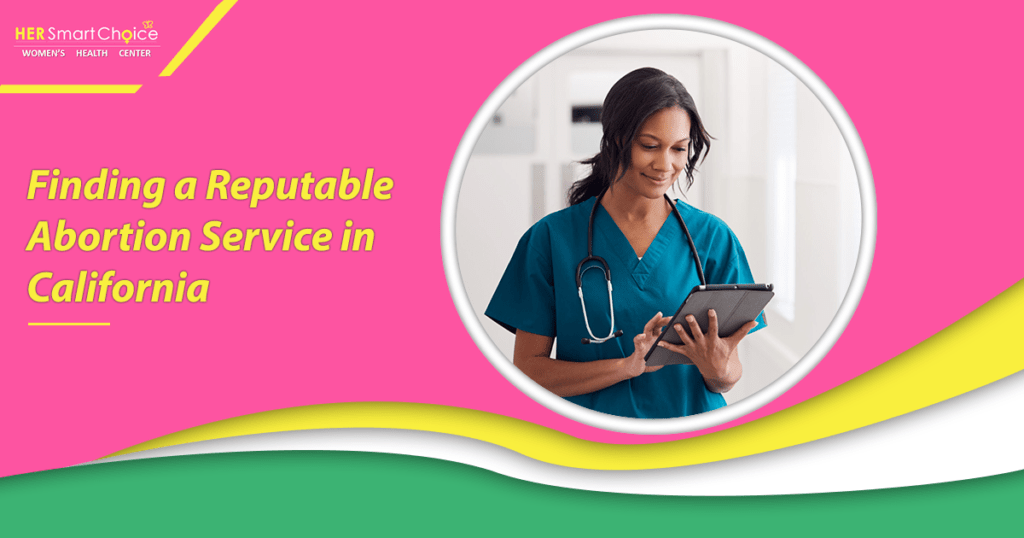What Are the Best Telehealth Services for Std Consultations?
Sexually transmitted diseases remain common in the United States, and many women experience barriers to timely care. According to the CDC, millions of new STD cases are diagnosed each year, and many infections cause mild or no symptoms in women. That gap between exposure and diagnosis can lead to complications that affect fertility, pregnancy outcomes, and long-term health. Telehealth has emerged as a practical way to close that gap by offering private consultations, convenient testing options, and treatment guidance without the need for an in-person visit.
Follow Us!
Telehealth services for STD consultations connect patients with licensed clinicians through secure video or messaging platforms. For women, these services can offer discretion, flexible scheduling, and access to care even when local clinics are difficult to reach. This article explains what telehealth STD services are, how they work, and how to evaluate the best options for women. It also covers testing, treatment, safety considerations, and when in-person care is still necessary.
What is telehealth for STD consultations?
Telehealth for STD consultations refers to medical care delivered remotely for concerns related to sexually transmitted infections. This typically includes symptom assessment, sexual health counseling, ordering laboratory tests, reviewing results, and prescribing treatment when appropriate. Services are provided by licensed clinicians who follow state and federal regulations.
During a telehealth visit, a clinician reviews symptoms, sexual history, and risk factors. If testing is needed, the clinician may order lab work at a nearby facility or arrange an at-home collection kit when available. Results are reviewed with the patient, and treatment or follow-up care is discussed. Telehealth does not replace all in-person services, but it can be an effective first step for many women seeking STD evaluation.
Telehealth STD services are often confused with online test ordering sites. The key difference is clinical oversight. A true telehealth consultation includes a medical evaluation and guidance from a licensed provider rather than test ordering alone.
Why telehealth can be a strong option for women
Women face unique challenges related to sexual health. Many STDs are asymptomatic in women, which can delay diagnosis. Others cause symptoms that overlap with common gynecologic conditions. Telehealth can help address these challenges in several ways.
Privacy and discretion are major benefits. Telehealth visits can be completed from home, reducing concerns about stigma or visibility at a clinic. Convenience is another advantage, especially for women balancing work, caregiving, or limited transportation. Telehealth may also improve access for women in areas with few women’s health clinics.
Telehealth services can complement care from a women’s health clinic by offering faster initial assessment and follow-up discussions. Some women use telehealth as their primary entry point into care, while others use it between in-person visits.
Common STDs addressed through telehealth
Most telehealth STD services focus on common infections that can be evaluated and managed remotely in many cases.
Chlamydia and gonorrhea
Chlamydia and gonorrhea are among the most frequently reported bacterial STDs in the United States. Many women have no symptoms. When symptoms occur, they may include abnormal discharge, pelvic pain, or pain during urination. Telehealth clinicians can assess risk and order testing. According to CDC guidelines, these infections are treatable with antibiotics once confirmed.
Human papillomavirus
HPV is very common and often clears on its own. Some strains are linked to cervical cancer. Telehealth clinicians can provide education, discuss screening schedules such as Pap tests, and guide follow-up care. HPV testing itself is usually performed during in-person cervical screening, but telehealth can support counseling and prevention.
Genital herpes
Herpes simplex virus causes recurrent outbreaks of sores or blisters. Diagnosis may be based on symptoms, history, and testing. Telehealth clinicians can discuss suppressive or episodic antiviral therapy. Research published in the New England Journal of Medicine shows that antiviral treatment can reduce outbreak severity and transmission risk.
Syphilis
Syphilis progresses through stages and can cause serious complications if untreated. Telehealth can help with risk assessment and ordering blood tests. Treatment typically requires in-person administration of medication, so telehealth often serves as an initial step rather than complete care.
HIV
HIV testing and counseling are essential components of sexual health. Telehealth services can provide pre-test counseling, order testing, and discuss results. Ongoing HIV management usually requires in-person care, but telehealth can support education and linkage to services.
How telehealth STD consultations work
Understanding the typical process can help women choose the right service.
Initial consultation
The visit usually begins with a detailed medical and sexual history. Clinicians ask about symptoms, recent exposures, contraceptive use, and pregnancy status. This information helps determine testing needs and urgency.
Testing options
Testing may be arranged through local laboratories or home kits, depending on the infection and availability. The FDA has authorized certain at-home STD tests, and clinicians follow approved indications. According to NIH guidance, laboratory-based testing remains the standard for many STDs due to accuracy and reliability.
Results and follow-up
Results are reviewed during a follow-up telehealth visit or through secure messaging. Clinicians explain what the results mean and discuss next steps. If treatment is indicated and permitted by state law, prescriptions may be sent to a local pharmacy.
Treatment and counseling
Treatment plans follow established guidelines such as those from the CDC. Clinicians also provide counseling on partner notification, prevention, and follow-up testing when needed.
What to look for in the best telehealth STD services
Not all telehealth services are the same. Several factors can help identify high-quality options.
Licensed clinicians and credentials
The service should clearly state that care is provided by licensed physicians, nurse practitioners, or physician assistants. Providers should be licensed in the patient’s state, which is required for telehealth care in the United States.
Evidence-based care
Best services follow current clinical guidelines. They explain testing accuracy, treatment effectiveness, and limitations. According to the CDC, adherence to evidence-based protocols is essential for STD management.
Clear testing pathways
High-quality services explain how testing is done, where samples are collected, and how results are delivered. They also clarify what infections can and cannot be managed remotely.
Privacy and data security
Telehealth platforms should use secure systems that protect patient information. Women should be able to review privacy policies and understand how data is stored and shared.
Integration with women’s health needs
Some services take a broader approach to reproductive and sexual health. A women-focused clinic such as Her Smart Choice may integrate STD consultations with counseling on contraception, pregnancy considerations, and access to in-person care when needed. This integrated approach can be helpful for women who want continuity across different aspects of care.
Telehealth versus in-person women’s health clinics
Telehealth and in-person clinics each play an important role in women’s healthcare. Virtual visits can make it easier to access care quickly, while in-person clinics remain essential for exams and hands-on treatments. For many women, using both options offers the most comprehensive support.
Telehealth may be appropriate for initial assessment, routine screening discussions, and treatment of uncomplicated infections. In-person care is necessary for pelvic exams, certain tests, injections, and management of complications. Cleveland Clinic experts note that combining remote and in-person care can improve access without compromising safety.
Treatment options available through telehealth
Treatment depends on the infection and individual circumstances.
Antibiotic therapy
For bacterial STDs such as chlamydia and gonorrhea, telehealth clinicians can prescribe antibiotics once testing confirms the diagnosis. The CDC regularly updates recommended regimens based on resistance patterns.
Antiviral therapy
For herpes, antiviral medications may be prescribed to reduce symptoms and transmission risk. Treatment plans are individualized based on outbreak frequency and patient preferences.
Supportive care and counseling
Education on prevention, condom use, and partner testing is a core part of care. Telehealth clinicians often spend time addressing questions and concerns that may not be fully covered during brief clinic visits.
Prevention and screening considerations for women
Prevention is a key component of sexual health.
Regular screening
CDC recommendations include routine screening for chlamydia and gonorrhea in sexually active women under 25 and in older women with risk factors. Telehealth can support scheduling and follow-up.
Vaccination
HPV vaccination is recommended for many adolescents and young adults. Telehealth clinicians can provide guidance on eligibility and direct patients to vaccination sites.
Risk reduction strategies
Counseling on barrier methods, communication with partners, and testing frequency is part of comprehensive care. Research published in JAMA suggests that counseling combined with testing improves prevention outcomes.
Living with an STD and ongoing care
An STD diagnosis can be emotionally challenging. Telehealth services can provide ongoing support, education, and follow-up. For chronic conditions such as herpes or HIV, coordination with in-person providers is important. Prognosis varies by condition, but early diagnosis and adherence to treatment are associated with better outcomes.
Women should plan regular follow-up and discuss future reproductive goals with their healthcare providers. Telehealth can help maintain continuity, especially between clinic visits.
FAQs
Accuracy depends on the type of test and sample collection. Laboratory-based tests ordered through telehealth follow the same standards as in-person orders. According to the CDC, nucleic acid amplification tests used for chlamydia and gonorrhea are highly sensitive and specific when collected correctly.
In many cases, yes. Licensed clinicians can prescribe medications for certain STDs after appropriate evaluation and testing, as allowed by state law. Some treatments still require in-person administration, which the clinician will explain.
Telehealth can be used for counseling and initial assessment during pregnancy, but testing and treatment decisions require careful coordination with obstetric care. The CDC recommends prompt evaluation of STDs in pregnancy due to potential risks to both mother and baby.
Severe pelvic pain, fever, heavy bleeding, or symptoms of advanced infection require urgent in-person evaluation. Telehealth clinicians will advise when symptoms suggest complications that cannot be managed remotely.
Reputable services use secure platforms to protect patient information. Privacy policies should clearly explain data handling. Many women choose telehealth specifically for its discretion compared to waiting rooms.
Telehealth can handle many aspects of STD care, but it does not replace physical exams and procedures. Most experts recommend using telehealth alongside regular in-person care for comprehensive women’s health.
Look for licensed clinicians, evidence-based protocols, clear testing options, and transparent privacy practices. Women-focused services that integrate reproductive health, such as Her Smart Choice, may offer added continuity for some patients.
Medical Disclaimer and Conclusion
This article is for informational purposes only and does not constitute medical advice. Always consult with a qualified healthcare provider for diagnosis and treatment.
Telehealth has become an important tool for STD consultations, especially for women seeking privacy, convenience, and timely care. High-quality services provide licensed clinicians, evidence-based testing, and clear follow-up pathways. Telehealth works best when combined with appropriate in-person care and regular screening. By understanding how these services work and what to look for, women can make informed choices that support their sexual and reproductive health.
Follow Us!


























